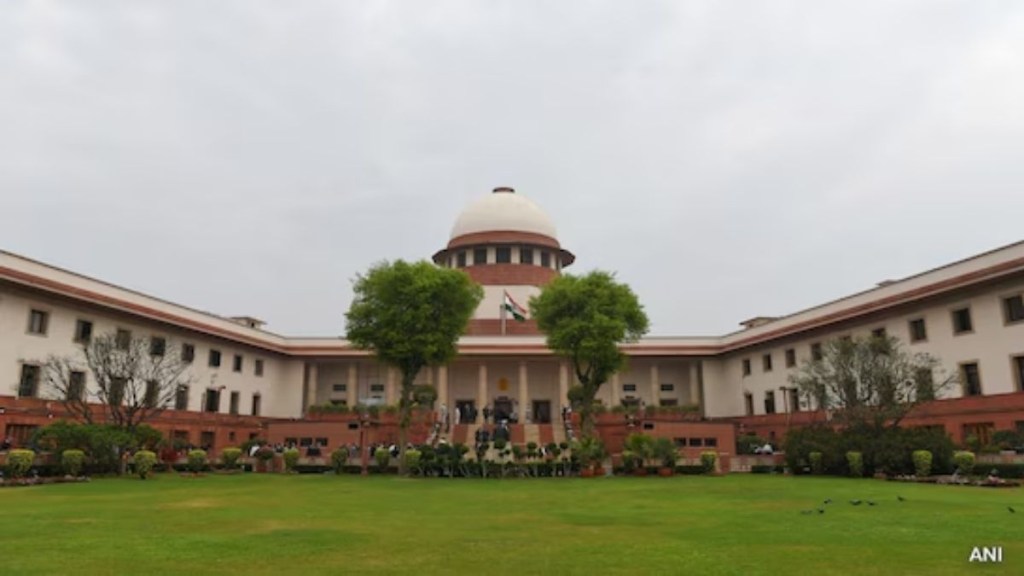The Supreme Court on Monday stayed parts of the Waqf (Amendment) Act, adding that there was no case to stay the entire Act. The apex court remarked that only in rare cases an Act of parliament can be stayed. However, the court ordered an stay on the provision of 5 years of practicing Islam till the State government frame rules around the same. A bench comprising Chief Justice B R Gavai and Justice Augustine George Masih pronounced the interim order and said, “We have considered prima facie challenge to each of the sections and found no case was made out to stay the entire statute.”
The Parliament cleared Waqf (Amendment) Act 2025 earlier this year. Several provisions of the Act were heavily opposed by the opposition, and it also led to a number of violent incidents across several areas in the country. The Act was challenged in the top court, which held multiple hearings to understand both the sides.
“We have held presumption is always on constitutionality of statute and in rarest it can be done. We have found that the entire Act is challenged, but the basic challenge was sections 3(r), 3C, 14,…,” the CJI said while reading the order.
What provisions have been stayed by the Supreme Court
The SC has put a stay on some of the contentious Sections of the Act. This includes:
1. Section 3r- 5 years of practising Islam stall stand stayed until rules are framed by State Governments for providing mechanism for determining. Without there being a mechanism, it would lead to “arbitrary exercise of powers”.
2. Provision to 3C(2)- “Provided that such property shall not be treated as waqf property till the designated officer submits his report.
(3) In case the designated officer determines the property to be a Government property, he shall make necessary corrections in revenue records and submit a report in this regard to the State Government.
(4) The State Government shall, on receipt of the report of the designated officer, direct the Board to make appropriate correction in the records”- shall stands stayed, permitting collector for determine the rights is against separation of powers, executive can’t be permitted to determine the rights of citizens. Until there is finality of the findings by the designated officer, the rights of property will not be affected, the court said.
3. The court said until the issue of the title of the waqf property in terms of Section 3C is not finally decided, the proceedings initiated under Section 83 by the tribunal and subject to further orders by high court, neither the waqf will be dispossesed of the property nor the revenue record and records of the Board shall be affected. However, the SC added, upon commencement of inquiry under Section 3C, and till final determination under Section 83, and subject to further orders of the high court in appeal, no third-party rights shall be created in respect of such properties, quoted Live Law.
4. Furthermore, the SC directed that the Central Waqf Council under Section 9, shall not consist of four non-Muslim members out of 20. Equally, for State Boards under Section 14, it is directed that it shall not consist of more than three non-Muslim members out of 11.
5. The court said it was not inclined to stay Section 23, but directed that as far as possible, “efforts should be made to appoint Chief Executive Officer of the Board, who is the ex-officio Secretary from amongst the Muslim community”.
Understanding the SC order
The Supreme Court has stayed a few sections of the Act, and not the whole Act. Senior advocate Ashwini Upadhyay said the top court refused to reject the entire Act and that its an interim order.
“…The demand to stay the entire Act has been rejected by the Court. Only a few sections have been stayed. It’s an interim order. The final decision will come after the final hearing. Regarding non-Muslims creating Waqf, the Court said that the status quo will be maintained until new rules are framed…” he said.
VIDEO | Delhi: On the Supreme Court's interim order on the Waqf (Amendment) Act 2025, which stays the provision that only persons practising Islam for the last five years can create a Waqf, senior advocate Ashwini Upadhyay says, “…The demand to stay the entire Act has been… pic.twitter.com/9xi5RZMqfI
— Press Trust of India (@PTI_News) September 15, 2025
Explaining the order Advocate Varun Sinha said the court has not ordered any stay on the amendment brought in by the Central government. “Only there is an interim order in favour of the petitioners regarding that they cannot be deprived of the Waqf property without following the procedure laid down in the law, including the amended law.”
“If any Waqf has to be taken by the government, then the procedure laid down in the Waqf Act, including the amendment of the Waqf has to be followed by the tribunal as well as by the High Court. So after judgment of the tribunal, that order can be given effect too. Those Waqf that are not registered will not be treated as Waqf property… Those who have not practised Islam for five years, they cannot create Waqf, that provision has been stayed…” he said.
Advocate Anas Tanwir told the media that in Section 9, it is stated that not more than four non-members can be non-Muslims and in Section 23, it is mentioned that out of the 11 board members, not more than three can be non-Muslims. “Section 23 has not been stayed, but it has been noted that all efforts should be made to appoint the CEO from the Muslim community…” he said.
The apex court on May 22 had reserved its order on three key issues that included the power to denotify properties declared as “waqf by courts, waqf-by-user or waqf by deed”.

